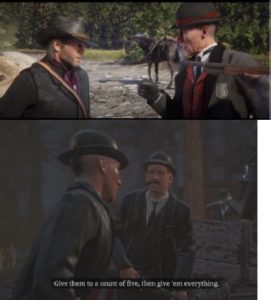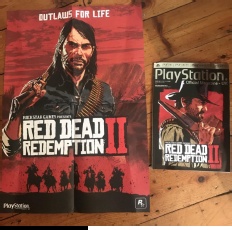The makers of the popular video game Red Dead Redemption are suing the security company Pinkerton, for use of the security company’s name in its video game. Take-Two Interactive, the makers of the game are suing claiming they have a right to use the name based on the First Amendment.

Pnkerton Consulting & Investigations delivered its cease-and-desist letter in December after the video games release. Although cordial, it argued that Take-Two was using Pinkerton’s “goodwill” associated with the company’s trademarks.

In these situations, the argument is that the video game is falsely associating itself with the security firm.
Red Dead Redemption 2 is a sequel to the popular video game set in the Wild West in the late 1800s. There are references to the Pinkerton National Detective Agency and Pinkerton agents which played a role in law enforcement during this time. In the video game, agents of the Pinkerton National Detective Agency are in pursuit of the outlaws.
The lawsuit argues that the use of the Pinkerton name is “neither excessive nor exceptional.” They argue that there are 60 hours of storyline in the game and of the 106 “missions,” Pinkerton characters are only in 10. They also note that Pinkerton has been utilized in other western shows.
Take-Two argues that the Pinkerton National Detective Agency are a part of the popular media and culture and are protected by the First Amendment. They cite to various media which have used the Pinkerton name without legal repercussion. It also argues that the Pinkerton company’s IP of today differs from the historical agents identified in the video game.
Take-Two argues that the Court should issue a declaratory judgment of non-infringement under the First Amendment, Nominative Fair Use and or no Likelihood of Confusion.
The lawsuit will be an interesting one to follow for those wanting to use historical trademarked names in their own copyrighted work. There is a viable argument under Fair Use and Likelihood of Confusion. But, the issue to look for is whether a Court would determine that the use of the mark is valid under First Amendment purposes as this could stretch the use of other trademarks in other works of authorship.
(The two images are embedded in the lawsuit found here.)